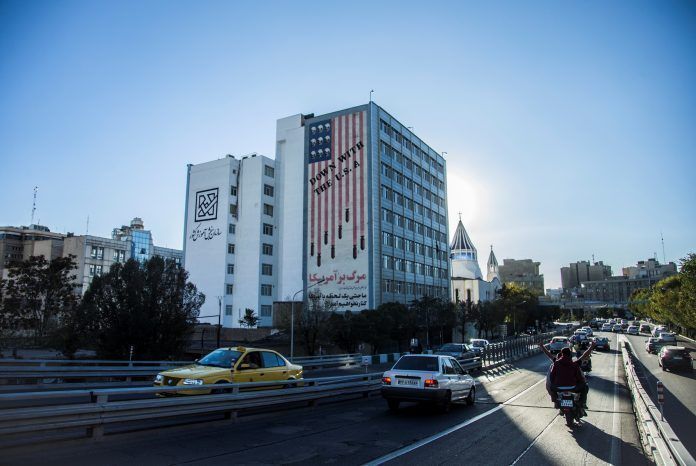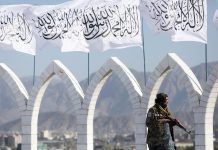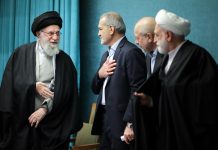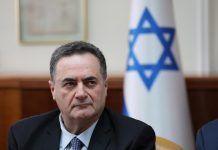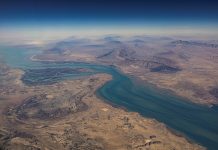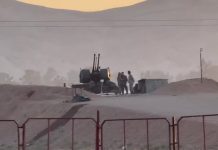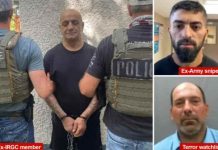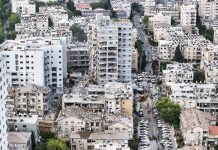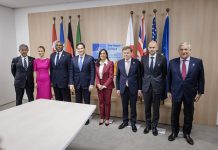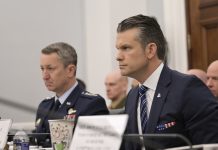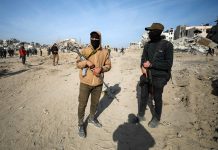By Ahmad Rafat
Negotiations between the Islamic Republic of Iran and the United States, mediated by the Sultanate of Oman, are currently under way.
The third round of talks is scheduled for April 26 in Muscat, Oman — the same location as the first round on April 12 — following the second round, which took place in Rome on April 22.
For the first time, technical-level nuclear experts from both sides will also convene, signaling a shift towards a more practical phase of dialogue. This development suggests that the discussions are moving beyond broad political statements toward substantive technical engagement.
However, the specific focus of these expert-level talks have yet to be clarified.
US Names Lead for Technical Talks with Iran, Politico Reports
In his closing remarks, Omani Foreign Minister Badr bin Hamad Al Busaidi, who participated in the Rome negotiations held at his country’s embassy, emphasized Iran’s right to enrich uranium for peaceful purposes.
By contrast, U.S. Secretary of State Marco Rubio recently argued that Iran — like other nations — can source enriched uranium for civilian use from abroad.
Iran Can’t Enrich Uranium, Could Only Import It for Civilian Program, Rubio Says
The Islamic Republic has identified uranium enrichment as a non-negotiable red line in the ongoing talks. However, it has expressed a willingness to discuss the degree of enrichment, a topic likely to require detailed technical negotiations.
The joint expert commission from both countries could also address the operations at various Iranian nuclear facilities, their stated objectives, and the mutual assurances each side deems essential for fostering trust.
Although the discussions might seem like direct talks between the Islamic Republic and the U.S., with Oman serving as a mediator and facilitator, they are, in fact, multilateral.
Though not physically present at the table, several key players are deeply involved behind the scenes. These include Russia, Israel, Saudi Arabia, and the three European signatories of the 2015 nuclear agreement: France, Germany, and the United Kingdom.
The flurry of diplomatic travel during these negotiations shows that Tehran and Washington are not the only players involved.
U.S. Special Envoy to the Middle East Steve Witkoff met with European and Israeli officials in Moscow and Paris. Meanwhile, Iranian Foreign Minister Abbas Araghchi also stopped in Moscow before attending talks in Rome and later continued to Beijing.
Sultan Haitham bin Tariq Al Said of Oman met with Vladimir Putin in Moscow, while Saudi Crown Prince and Defense Minister Mohammed bin Salman personally delivered a letter from King Salman to Iran’s Supreme Leader, Ali Khamenei, in Tehran.
European leaders remain pessimistic about the ongoing negotiations. Frustrated by U.S. President Donald Trump’s decision to marginalize them, they hope the talks will collapse, allowing them to regain control by reactivating the snapback mechanism and reinstating international sanctions on Iran.
The snapback mechanism — built into the 2015 Joint Comprehensive Plan of Action (JCPOA) — serves as an emergency measure, allowing for the swift reimposition of United Nations sanctions should Iran violate its nuclear commitments.
Israel, too, is dissatisfied with the diplomatic efforts.
It views any potential agreement with the Islamic Republic as doomed to fail, much like the JCPOA. From Israel’s perspective, such a deal would endanger its national security. Favoring a military approach to diplomacy, Israel appears to be biding its time, ready to act with U.S. backing if negotiations break down.
Saudi Arabia approaches the negotiations from a different perspective.
It considers the exclusion of the Islamic Republic’s regional policies and its backing of armed groups in the Middle East from the discussions as a win for Khamenei and the regime in Tehran.
Meanwhile, Russia has consistently opposed any meaningful agreement between the Islamic Republic and the U.S. or Europe.
Since the onset of the war in Ukraine, Moscow has viewed Tehran’s potential alignment with the West as a threat to its strategic interests. Russia seeks to maintain a central role in shaping U.S.-Iran relations and is reluctant to accept a reduced influence.
The negotiations are encountering significant resistance in both Tehran and Washington.
Many Republicans, particularly allies of President Trump, argue that the talks are futile and insist that only military action can stop the Islamic Republic from obtaining a nuclear weapon.
They point to recent remarks by Rafael Grossi, Director General of the International Atomic Energy Agency (IAEA), who noted that Iran’s current stockpile of 60 percent enriched uranium is enough to produce four to six nuclear bombs and that the country possesses all necessary components — lacking only final assembly.
Within the Islamic Republic, elements of the Islamic Revolutionary Guard Corps (IRGC) and hardline factions — such as those represented by Hossein Shariatmadari, editor-in-chief of the Tehran-based Kayhan newspaper — view concessions on the nuclear issue as a potential threat to the regime’s survival.
They argue that acquiring a nuclear weapon, much like North Korea has done, could act as a deterrent against foreign efforts to topple the regime.
Additionally, proponents of this stance believe that yielding to Western or U.S. pressure could open the door to further demands, particularly concerning Iran’s missile capabilities and regional influence.
https://kayhanlife.com/news/iran/analysis-europeans-sidelined-in-us-iran-nuclear-talks-despite-holding-key-card/

